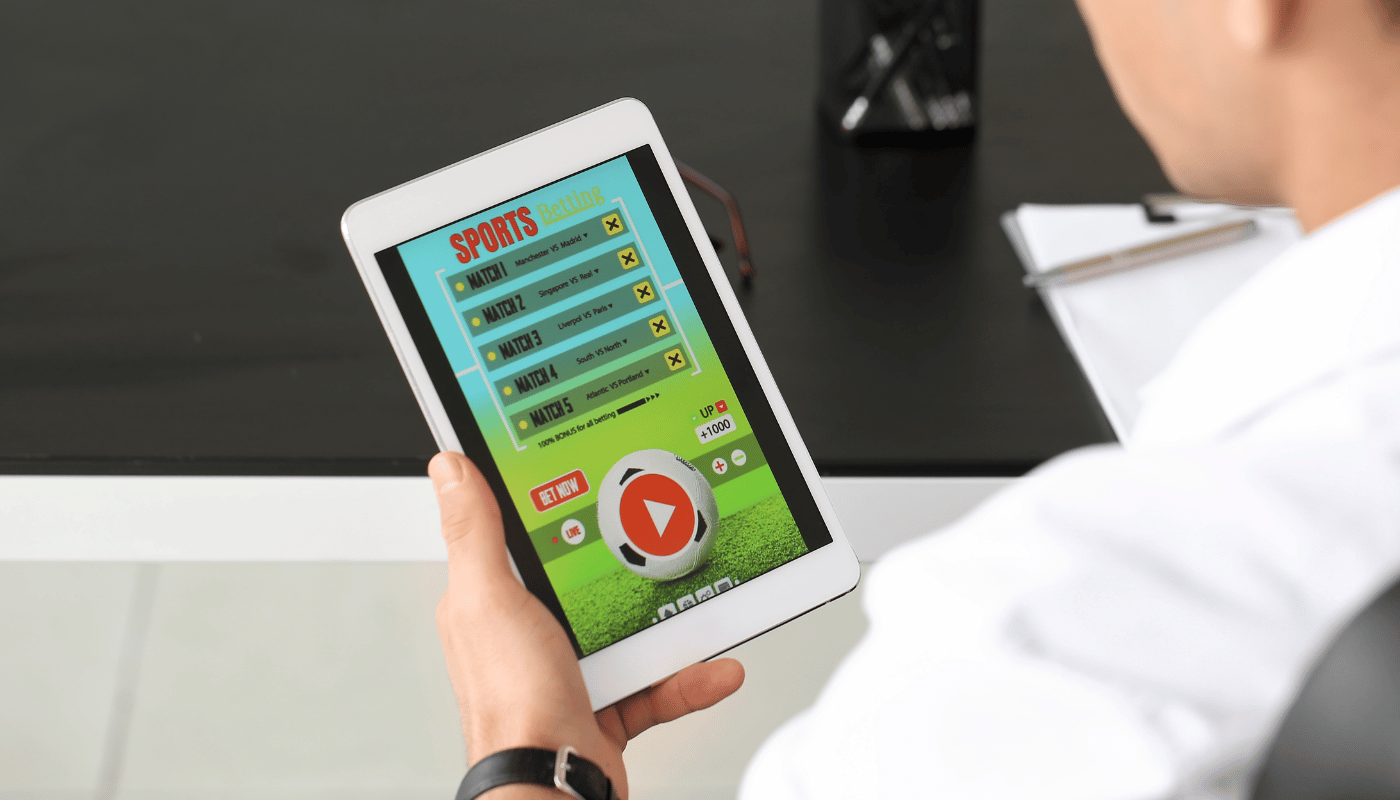Concussions are a type of traumatic brain injury that can have significant effects on both physical and cognitive functions. Identifying a concussion early on is critical, as it allows for timely intervention and reduces the risk of long-term complications. For individuals who experience head injuries or unusual symptoms, taking steps to assess possible signs of a concussion is essential.
One way to start this assessment is through self-evaluation. Many people may wonder how to know if I have a concussion quiz tools can provide an initial insight into the presence of concussion symptoms. While these quizzes are not a substitute for professional diagnosis, they can offer valuable guidance, helping individuals determine if further medical evaluation is necessary. In this article, we will explore common symptoms, the role of self-assessment quizzes, and how to interpret results to make informed decisions about seeking medical care.
Understanding Concussions
A concussion is a type of mild traumatic brain injury that occurs when the brain is jolted or shaken within the skull, often due to a blow to the head or a sudden impact to the body. This movement can disrupt normal brain function, leading to a variety of physical, cognitive, and emotional symptoms. Concussions are most common in contact sports, car accidents, and falls, but they can happen in many situations, regardless of age or activity level.
The symptoms of a concussion can vary widely from person to person. Some individuals may experience immediate effects, such as headaches, dizziness, and confusion, while others may notice symptoms appearing gradually over hours or even days. Common symptoms include headaches, nausea, balance problems, sensitivity to light and sound, and difficulty concentrating. These symptoms arise because the injury affects how the brain processes information, regulates balance, and controls sensory responses.
The potential risks associated with untreated concussions are significant. Without proper care, a single concussion can lead to prolonged symptoms, a condition known as post-concussion syndrome. Additionally, experiencing multiple concussions over time may increase the risk of chronic traumatic encephalopathy (CTE), a progressive degenerative brain condition linked to repeated brain trauma. For those questioning how to know if I have a concussion quiz assessments can be a helpful first step in recognizing symptoms and understanding the need for medical care.
Concussions require careful monitoring, especially in the first 48 hours after injury. Seeking a professional diagnosis can help ensure a proper recovery plan is in place, reducing the risk of long-term complications and supporting a safer return to normal activities.
Common Symptoms of a Concussion
Recognizing the symptoms of a concussion is crucial, as they often signal the need for medical attention and careful monitoring. Many of these symptoms impact day-to-day functioning, and even a mild head injury can lead to noticeable changes in how a person feels or behaves. When questioning how to know if I have a concussion quiz tools may highlight some of the more common symptoms, but understanding them in depth can help identify signs that might otherwise be overlooked.
Concussion symptoms can be grouped into physical, cognitive, and emotional categories. Physically, many individuals report headaches, nausea, or dizziness. Cognitive symptoms, such as confusion or memory issues, can make it difficult to focus or retain new information. Emotionally, some people experience mood swings, irritability, or anxiety, which may not always be directly linked to the injury.
Below is a list of typical symptoms that might indicate a concussion:
- Headache or “pressure” in the head: Often the most immediate and persistent symptom following a head injury.
- Nausea or vomiting: Particularly common soon after the injury occurs.
- Dizziness or balance problems: This can include feelings of lightheadedness or difficulty walking steadily.
- Sensitivity to light or noise: Bright lights or loud sounds may become overwhelming.
- Fatigue or drowsiness: Many people feel unusually tired and may struggle to stay awake.
- Confusion or memory problems: Short-term memory loss or feeling “foggy” is common.
These symptoms might appear immediately or develop gradually over time, sometimes becoming more pronounced in the hours or days following the injury. Each individual may experience a unique combination of symptoms, and their severity can range from mild discomfort to significant impairment. Knowing these common signs helps individuals stay alert to possible concussions and seek medical advice if symptoms persist or worsen.
By keeping track of any persistent symptoms and understanding their potential connection to a head injury, individuals can take appropriate steps toward diagnosis and treatment, reducing the likelihood of prolonged recovery.
The Role of Self-Assessment Quizzes
Self-assessment quizzes are convenient tools for people seeking to identify possible concussion symptoms. For those asking how to know if I have a concussion quiz options allow individuals to quickly evaluate common symptoms like headaches, dizziness, and confusion.
These quizzes are easily accessible online, offering a quick initial check of potential signs of a concussion. While useful, it’s essential to recognize their limitations. Quizzes are not a substitute for professional evaluation, as they provide only a general overview of symptoms without a formal diagnosis.
Ultimately, while self-assessment quizzes are a helpful starting point, anyone experiencing serious or ongoing symptoms should seek professional medical advice to ensure a thorough and accurate diagnosis.
Sample Concussion Self-Assessment Quiz
If you think you might have a concussion, taking a self-assessment quiz can be a helpful first step in identifying potential symptoms. This type of quiz focuses on common post-injury signs, such as headaches, dizziness, and trouble concentrating, giving you an opportunity to evaluate how you’re feeling. While it can guide you in recognizing possible concerns, it’s crucial to remember that this quiz is not a substitute for a professional diagnosis or medical evaluation. Concussions can vary significantly in severity and presentation, making expert input essential.
For those asking, how to know if I have a concussion quiz questions are crafted to reflect key indicators that are often seen in individuals with a concussion. They target physical symptoms like nausea and dizziness, as well as cognitive and emotional changes that may signal a problem. Reflecting on these symptoms through a structured set of questions can help you decide whether further steps, such as consulting a healthcare provider, are necessary.
Questions to Consider:
| Question | Answer Options |
| Have you experienced a headache since the injury? | Yes / No |
| Do you feel dizzy or unbalanced? | Yes / No |
| Are you sensitive to light or loud noises? | Yes / No |
| Have you had any nausea or vomiting? | Yes / No |
| Are you having difficulty concentrating? | Yes / No |
| Have you noticed mood changes or irritability? | Yes / No |
| Do you feel fatigued or unusually tired? | Yes / No |
| Have you experienced memory problems? | Yes / No |
If you answer “Yes” to several of these questions, it might indicate symptoms commonly associated with a concussion. However, even if symptoms seem mild, it’s essential to take them seriously. Concussions can sometimes present subtly but may still have lasting effects if left untreated.
After completing the quiz, evaluate your symptoms carefully. Are they persistent, worsening, or interfering with your daily activities? These are critical factors to consider when deciding whether to seek professional care. Severe symptoms or any signs of confusion, worsening headaches, or loss of consciousness require immediate medical attention. When in doubt, consulting a healthcare provider ensures you get the proper care and helps prevent potential complications.
This quiz is meant to empower you to take your symptoms seriously and seek medical advice as needed, reinforcing the importance of prompt and accurate diagnosis in concussion recovery.
Interpreting Your Quiz Results
After completing a self-assessment quiz, understanding the results is essential to determine the next steps. If you’ve been wondering how to know if I have a concussion quiz results can offer a preliminary look at possible concussion symptoms. However, interpreting these results requires careful consideration of symptom severity and persistence.
If you answered “Yes” to multiple questions, this could indicate the presence of symptoms commonly associated with concussions, such as headaches, dizziness, or sensitivity to light. These symptoms are warning signs that the brain may have been affected by a recent impact or jolt. Even if symptoms seem mild, it’s wise to take them seriously, as concussions can vary greatly in severity and can sometimes worsen over time.
For individuals with persistent or worsening symptoms, seeking medical attention is crucial. A healthcare provider can conduct a full assessment and potentially run diagnostic tests, such as a neurological exam, to provide a definitive diagnosis. Even if you feel that your symptoms are manageable, professional guidance can help ensure that you recover properly and avoid complications, such as post-concussion syndrome.
Remember that while quizzes are helpful in assessing possible concussion symptoms, they are not a replacement for medical expertise. Always prioritize your health by consulting a healthcare professional if you have any concerns about concussion symptoms. This step can provide peace of mind and support a more effective recovery.
Key Indicators and Symptoms to Watch For
Identifying a concussion promptly is crucial for proper management and recovery. While quizzes and self-assessments can provide valuable guidance, understanding key indicators and common symptoms will help determine if further medical evaluation is needed. Concussions can vary widely in symptoms and severity, but recognizing certain patterns can help clarify when to seek professional care.
Some of the most telling signs of a concussion include headaches, dizziness, sensitivity to light and sound, and memory issues. Emotional symptoms, such as irritability or sudden mood changes, are also common, as are physical symptoms like nausea and balance difficulties. People often feel “foggy” or disoriented, with difficulty focusing or recalling recent events. Here are some common indicators to assess:
- Headache or “Pressure” in the Head
- Dizziness or Balance Issues
- Nausea or Vomiting
- Blurred or Double Vision
- Sensitivity to Light or Noise
- Difficulty Concentrating
- Memory Problems
While a self-assessment can be a helpful tool, it is not a replacement for a medical diagnosis. Anyone experiencing one or more of these symptoms following a head injury should consult a healthcare provider. Early intervention and following a recommended recovery plan can prevent symptoms from worsening and promote a full recovery.
By understanding these key symptoms, individuals can make informed choices about seeking medical help and avoid the risks associated with untreated concussions.
Conclusion
Recognizing the symptoms of a concussion is a critical step in protecting one’s health and ensuring timely treatment. Whether it’s headaches, dizziness, or trouble concentrating, these signs indicate that the brain may have sustained an injury. For those wondering how to know if I have a concussion quiz assessments can be a helpful starting point, guiding individuals toward greater awareness of their symptoms.
While self-assessment tools can provide insight, they should not replace professional medical evaluations. If symptoms are persistent or severe, consulting a healthcare provider is essential to confirm the diagnosis and prevent potential complications. By staying informed and seeking appropriate care, individuals can support their recovery and reduce the risks associated with untreated concussions.
Proactive health measures, such as recognizing symptoms early and prioritizing medical advice, are key to a safe and effective recovery from a concussion.


